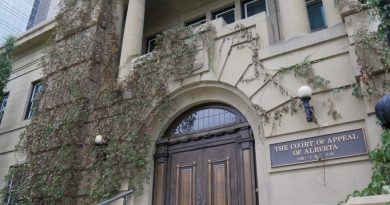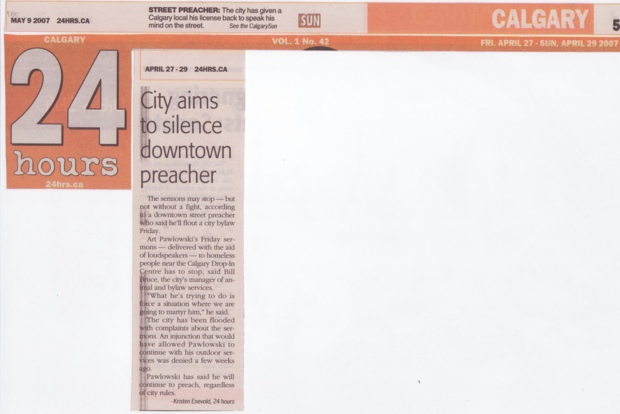‘Strong and Free’ is Albertan and Canadian
| Calgary Herald |
"The good Saxon word, freedom; freedom in every sense of the term, freedom of speech, freedom of action, freedom in religious life and civil life and last but not least, freedom in commercial life." — Opposition Liberal leader, Sir Wilfrid Laurier, during an 1894 campaign stop in Winnipeg
– – –
Judging by the reaction of some to the province’s suggestion to change Alberta’s licence plate and to allow a choice of slogans — either the present moniker, "Wild Rose Country" or the favoured replacement "Strong and Free" — it appears some critics are unaware of provincial and Canadian history.
Some object that "freedom" is American-sounding and an American concept. Such critics could not be more mistaken.
As it happens, Fortis et Liber is Alberta’s provincial motto and it is emblazoned on the provincial Coat of Arms, as well as on seals, shields, and banners. Most Albertans may not have a working knowledge of Latin so we will translate: Fortis et Liber means "strong and free." Of course, the line, "the true north, strong and free," is part of Canada’s national anthem, O Canada. Those two examples alone are sufficient reason for the Ed Stelmach government to allow drivers to emblazon their licence plate with our provincial motto.
On the wider question of whether the concept of freedom is somehow American and not Canadian, such an assertion — being made widely on the blogosphere is flatly incorrect and an insult to the men, boys and women who gave their lives in the fight for our freedom.
There is the matter of English Canada’s roots in English constitutional history and concurrent presumptions about the liberty of citizens: Consider the reality of freedom-celebrating documents such as the Magna Carta, which dates from 1215. We would also point to an influential English philosopher on the topic of liberty such as John Stuart Mill, among others.
But such concepts are not limited to English Canada or her roots. Recall French Canada’s spiritual connection to France and its liberty seeking revolution in 1789 and the slogan, liberte, egalite, fraternite. The translation of the first word is, of course, liberty.
Canada’s founding fathers and early politicians disagreed about many things, but they agreed on the importance of freedom. They used terms such as freedom and liberty interchangeably. Such words were part of their classic liberal heritage and which they derived from Great Britain. Note the excerpt from the 1894 speech from Liberal leader and future prime minister, Wilfrid Laurier, at the beginning of this editorial.
In addition to Laurier, others often used the language of freedom and liberty. A 1999 book on pre-Confederation speeches, Canada’s Founding Debates, from historian Janet Ajzenstat, reveals the following gems. In 1865, Richard Cartwright, a member of the United Province of Canada legislature (the body which represented Upper and Lower Canada after 1840 and until 1867), asserted that "I prefer British liberty to American equality."
Another parliamentarian, David Christie, asserted that the U.S. and Canada shared the principle of liberty, which both countries derived from Great Britain. "This is the secret of the strength of the British Constitution, and without a free and full recognition of it no government can be strong or permanent," said Christie in 1865.
In Nova Scotia’s legislature in 1866, William Lawrence argued that: "The spirit of liberty will make itself heard wherever it exists. Let us take care of our rights, for political expediency in limiting a people’s freedom is a dangerous principle and will never satisfy a free people."
Alberta’s Conservative government has a proper understanding of this province’s and this country’s historic attachment to freedom, liberty, and to a strong Canada. So in response to critics, perhaps they should reply with this quote from a 19th century legislator in British Columbia.
In 1870, during that colony’s debate about B.C.’s possible entry into confederation, T.L. Wood asserted that "it is not in the power of the present generation to dispose of the birthright of its descendants. Liberty and self-government are inalienable rights."
To which we would heartily agree and add that there is nothing un-Albertan or un-Canadian about liberty, strength, and freedom. Such words and the concepts behind them are fundamentally British and French in origin and belong to pre- and post-Confederation Canadian history. Those words helped build and define our country and our province and we pray always will. The Alberta government should quite properly allow for "Strong and Free" to be displayed on our licence plates.


